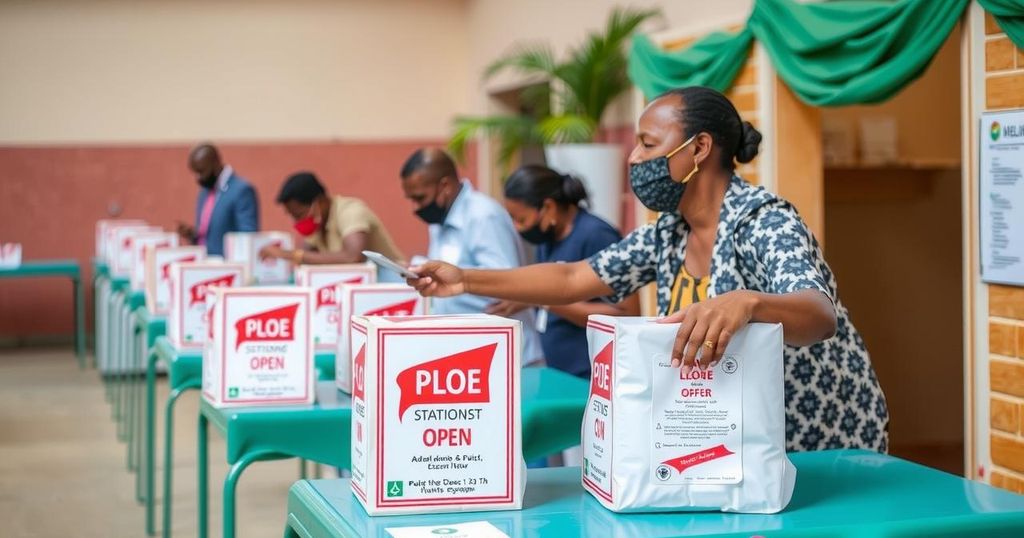Chad is conducting its first parliamentary election in 13 years amidst calls for a boycott from the opposition, which questions the legitimacy of the election process. Low voter turnout has been reported, particularly in the capital, while the government claims a record turnout among military and nomadic voters. The election occurs amidst ongoing challenges in governance, regional security, and allegations of electoral fraud.
Voting is currently underway in Chad, marking the first parliamentary election in 13 years, an event that the government touts as a significant stride towards ending military rule. Electorate participation involves selecting representatives for a new parliament, provincial assemblies, and local councils in a country plagued by poverty. Opposition parties have called for a boycott, claiming that the election results were predetermined, resulting in low voter turnout, particularly in the capital, N’Djamena.
While President Mahamat Idriss Deby Itno, who assumed power via military coup in 2021, encouraged citizens to vote by portraying this election as a historic occasion, the opposition expressed skepticism regarding the election’s integrity. Leaders of boycott factions claimed that they would not engage in a process they deemed illegitimate. Only a fraction engaged in voting, as several votes were already cast on the previous day by soldiers and police for logistical reasons.
The electoral agency reported considerable participation among military personnel and nomads. Sheikh Djibrine Hassabakarim, representing the nomadic community, emphasized the dire conditions his group faces, resulting from climate change impacting their livelihoods. While the government heralds this election as a milestone towards democratic transition, opposition representatives raised alarms over disappearing ballots and potential fraud facilitated by the ruling political party. The situation unfolds amid security challenges in the Lake Chad region and criticisms of Chad’s role in regional conflicts.
Chad’s parliamentary election comes after an extended period of military governance following the death of long-time leader Idriss Deby in 2021. Under the interim leadership of his son, President Mahamat Idriss Deby Itno, the elections have been framed as a necessary step towards returning to civilian rule. However, the opposition parties, alleging electoral fraud and unfair practices, have chosen to boycott the voting process, emphasizing the political and social tensions that continue to simmer in the nation. The socio-economic condition of Chad, one of the world’s least-developed countries, exacerbates the stakes of this electoral exercise, particularly for marginalized communities affected by climate change and violence in the region. The backdrop of the election includes security challenges posed by groups such as Boko Haram and regional political dynamics involving Chad’s former colonial ties with France. Furthermore, the legitimacy of this election is under scrutiny, as various opposition leaders assert that the results were preordained and manipulated.
In conclusion, Chad’s parliamentary election signifies a pivotal moment for the nation, attempting to transition from military rule to a civilian government structure amidst significant skepticism from opposition parties. The call for a boycott and allegations of pre-determined outcomes highlight the prevailing tensions and distrust in the electoral process. While the government promotes high turnout rates among military personnel, widespread voter apathy reflects the challenges of achieving genuine democratic reform in Chad.
Original Source: www.aljazeera.com






